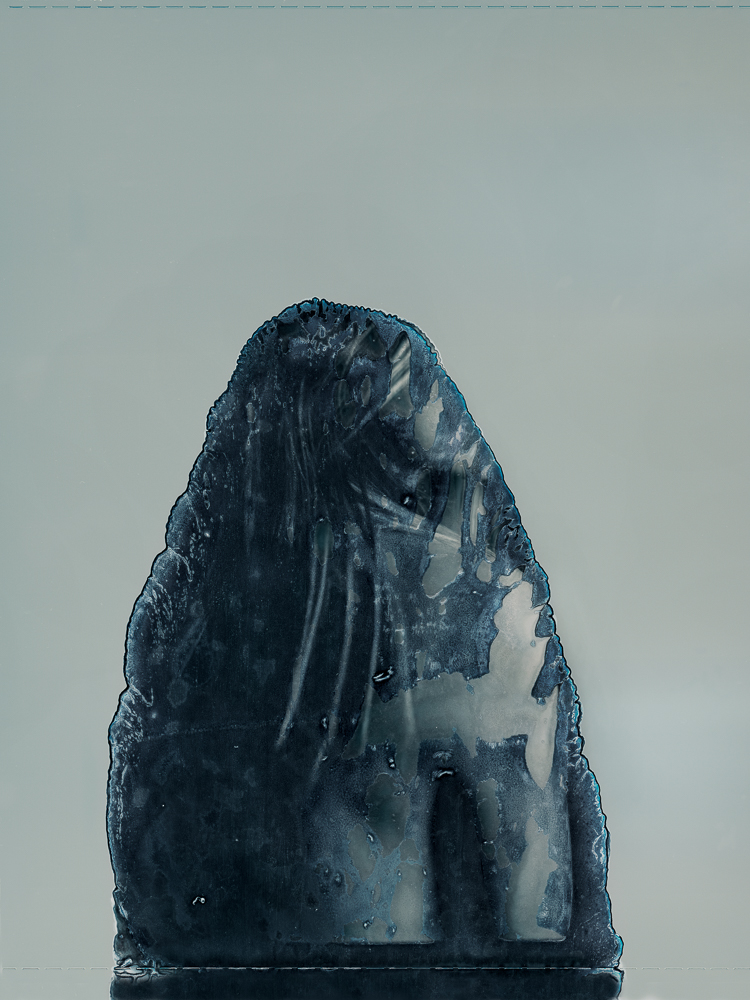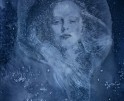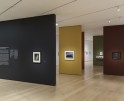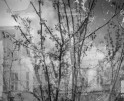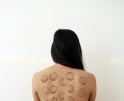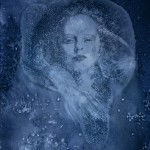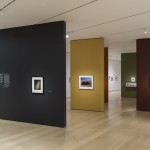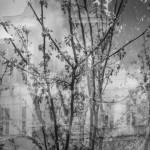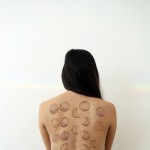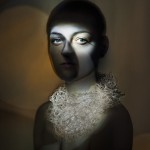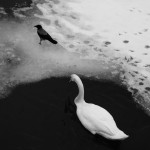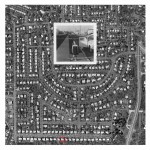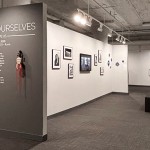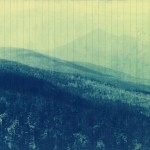Focus on Portraiture: Galina Kurlat: Temporal Forms
Galina Kulat’s stunning set of degraded Polaroid portraits speak to a layered consideration of time, memory, loss, and beauty. Each frame revealing haunting traces of the subject, but also the materiality of the experience and the fading documentation of a moment in time. The aging skin of the emulsions replicates the notion that we all end as dust, evidence of our existence slowly fading with each turn around the sun.
Kurlat is interested in embracing the imperfections and possibilities of antiquated photographic processes. Her images undulate between the recognizable and the ephemeral. She aims to challenge the historical burden of photography as a representational medium by accepting the chance and chaos inherent in photographic materials. Using traditional darkroom techniques; including wet collodion, expired Polaroid film and lumen prints she addresses themes of identity, memory and intimacy.
Most of Kurlat’s pictures are taken in a studio alone with the model. The works are a collaboration between the sitter and the materials used to make the photos. Polaroid will fade with time and wet collodion can be manipulated to create abstractions on the surface of the plate. Like many of the northern Renaissance painters she admires, she uses simple directional lighting, to enfold subjects. These images have an implied narrative. The model’s gesture, conscious or not, can inform the viewer and the direction of the subject’s gaze is their choice, whether to reveal or hide. Kurlat’s work is an ongoing investigation into the body as vulnerable and ever-changing.
A selection of this series will be exhibited at Pictura Gallery, Bloomington, IN in the spring.
Temporal Forms
The desire to push photographic materials beyond their intended use has been a critical part of my practice for many years. Using expired Polaroid film, I allow the negative to degrade over time. Chemistry, dust, and time interact with the image, marking the negative, which degrades the information on the film. Much like flesh, the negatives change as they age.
There is tension and a sensuality to these photographs, which feels familiar and mysterious at the same time. They are fragile moments orchestrated by myself and the model. The soft body folds and undulates, and like a waterscape, the body becomes a wave; it rises, falls, and breaks. When undressed, it radiates, then slowly, it seems a truth is revealed—an ambiguous truth, a truth that asks more questions than it answers.
Galina Kurlat (b. 1981, Russia) is a photographic artist living in Brooklyn, NY, she earned her BFA in Media Arts from Pratt Institute. Kurlat creates a visual relationship between herself and her subject by embracing the imperfections and possibilities of antiquated photographic processes. Her works undulate between the recognizable and the ephemeral. By accepting the change and chaos inherent in photographic materials Kurlat challenges photography as a historically representational medium.
Kurlat’s work has been shown in Korea, India, Scotland, France and the US. Recent exhibitions include “Shadow Play”, Peter Halpert Fine Art in NYC, “Process”, Studio Bizio in Edinburgh, “Touch me Touch you”, Jinju International Photo Festival, South Korea, “Self-Processing- Instant Photography”, Ogden Museum of Southern Art, New Orleans, LA. Her work is collected throughout the US and abroad.
Kurlat has been published in Oxford American, Fraction Magazine, Houston Chronicle, Diffusion IX and Fraction of a Second, Radius Books along with numerous other periodicals and catalogs. She is the cofounder of Main Street Projects, an artist-run organization in Houston which has hosted over 150 local, national and international artists to date. MSP is an artists’ initiative which brings art into urban surroundings.
During 2005-2011 Kurlat curated a number of multi-media and site specific exhibitions in alternate spaces throughout NYC. @galinakurlat
Posts on Lenscratch may not be reproduced without the permission of the Lenscratch staff and the photographer.
Recommended
-
Carolina Baldomá: An Elemental PracticeJanuary 5th, 2026
-
Time Travelers: Photographs from the Gayle Greenhill Collection at MOMADecember 28th, 2025
-
Suzette Dushi: Presences UnseenDecember 27th, 2025
-
Ragne Kristine Sigmond: Portraits of Painterly LightDecember 2nd, 2025
















